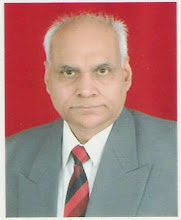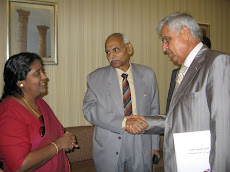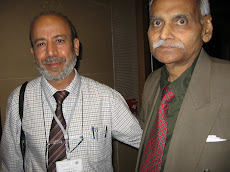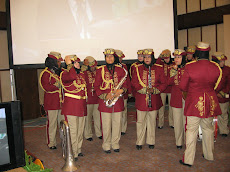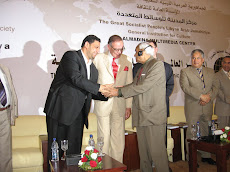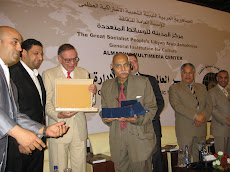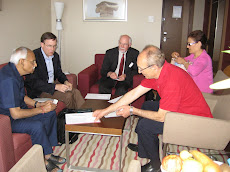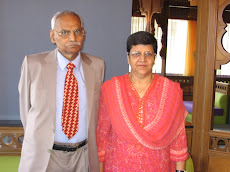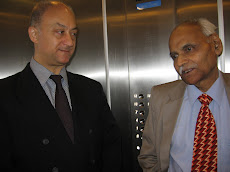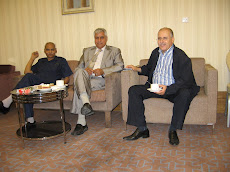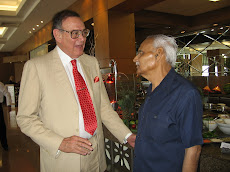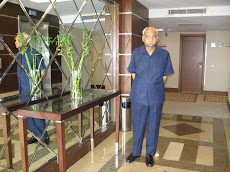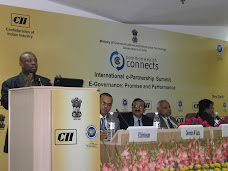Misra, D.C. (2009): Why we need e-civil services, mint, New Delhi, June 17, Wednesday, p-23, http://www.livemint.com/2009/06/16215553/Why-we-need-ecivil-services.html, (accessed: June 17, 2009).
Why we need e-civil services
The key step in India’s long-overdue governance reforms is making the bureaucracy more Web-oriented
D.C. Misra
One does not require either league tables or depressing newspaper reports to tell us that the Indian bureaucracy is passing through its gravest crisis since Independence. The telltale symptoms range from transfer and suspension of public officials without rhyme or reason to elusive public service delivery. The very fact that in her address to Parliament on 4 June, our President mentioned “governance reform” as one of the 10 priority areas for the next five years shows that the government is aware of the need to reform bureaucracy at the highest level.
Two remedies are normally suggested to redress the situation: first, the appointment of political appointees from the private sector, as is done in the US; second, less state involvement. These, have not worked. Political appointees have repeatedly failed in the US. As a result, calls are now being made to cut their numbers. Paul Verkuil, a professor of law at New York-based Yeshiva University, cites the study of Princeton professor David Lewis, which reported that “politically appointed bureau chiefs get systematically lower management grades than bureau chiefs drawn from the civil service”.
The state can and should shed extra baggage, as has already been done by privatization in a number of sectors since 1991. But certain state functions simply cannot be shed. These include defence, law and order, and public welfare.
For reforming Indian bureaucracy, the solution is twofold. First, instead of indulging in unproductive bureaucrat-bashing, we should strengthen the civil service. A state is as good (or as capable) as its bureaucracy. This requires radical improvements in the internal working of the civil service. A demoralized service is hardly an ideal instrument to serve the state and its citizens.
The vast majority of the civil service stands demoralized today due to faulty recruitment, unfair promotion policies, subjective (that is, biased) performance assessment, unsympathetic transfer and posting policies and, above all, political interference. One quickly learns that it is neither hard work nor professional competence which enables satisfactory career progression. Rather, what’s important is one’s caste, class, region and political connections. This can, and does, break even the strongest of civil servants who still cherish the values of hard work, justice and fair play
Secondly, and more importantly, we should promote e-governance. This is where the wheel meets the road. Such reform has direct impact on public service delivery and thus matters most to citizens. After outstanding success in e-commerce (for e.g., railway reservation) and e-banking, there is no reason why e-governance (24x7 public service delivery online) should still elude us. But it is eluding us, notwithstanding the existence of departments of information technology at the Centre and states, as well as the implementation of an ambitious national e-governance plan. The progress of e-governance has been tardy and patchy so far. The reason? Once again, the civil service has failed to meet the demands of e-governance. The solution thus lies in promoting the e-civil service.
In one sense, e-civil service is the use of artificial intelligence (AI) or software programs in discharging the functions of civil servants. This makes use of zero-touch technology (ZTT), or technology that does not involve human intervention. ZTT is far superior to human intervention as it is expected to minimize errors in the processing of cases. Consider, for example, the issue of passports. If issuing passports is based on the fulfilment of certain strict requirements, the job can be done by an AI agent. In fact, AI is suited to many such routine functions of government.
In another sense, the term e-civil service is used for civil servants discharging their functions as civil servants through an online interface. It is in this role that the bureaucracy is found seriously wanting. But it is again futile to blame the civil service —not bureaucrats, but rather their managers, are responsible for this plight. How do you, for example, expect civil servants to be tech-savvy when they are not formally trained in information and communication technologies (ICTs)? Reforming our governance should, therefore, start with training our civil service in ICTs.
The central issue in governance today is the yawning gap between the state and citizens. We are living in the 21st century, in the age of Facebook and Twitter. The old interface, Government 1.0 (one-way governance from government to citizens) is now history. Citizens are no longer passive recipients of public services. They now not only demand better, more efficient and value-added public services, but want to have a direct say in public policy formulation too.
Civil service reform must be approached as part of an introduction of Government 2.0 (two-way interactive government between the citizen and state). India already has the world’s fourth largest population of Internet users. It deserves e-civil service in its own right.
D.C. Misra is former chairman, Task Force for IT policy for Delhi. A different version of this article previously appeared on egov-india.blogspot.com. Comment at theirview@livemint.com
Wednesday, June 17, 2009
Tuesday, June 16, 2009
Misra, D.C. (2009): Ten Guiding Principles for Management Consultancy for E-government
Ten Guiding Principles for Management Consultants for E-government
by
Dr D.C.Misra
AbstractManagement consultancy for e-government is a new and emerging field. It has certain unique features that distinguish it from other types of management consultancies, most notably that in management consultancy for e-government, the management consultant is also a hidden stakeholder as a citizen and thus can, and should, very successfully look after the interests of both the state as well as the citizens. This paper attempts to define consultancy, draws distinction between management consulting and management consultancy and outsourcing, develops a normative definition of management consultancy for e-government, and draws distinction between management consultancy and management consultancy for e-government. It then describes some of the management consultancy cycles for e-government. While noting that two sets of guiding principles for management consultancy for e-government- one for the organization engaging the consultants, and the other for management consultants- are needed, it concludes by developing ten guiding principles for management consultants for e-government in the hope that aspiring and practicing management consultants for e-government may find it useful in their professional work in serving both the state and the citizens.
Keywords: Guiding Principles, Management Consultancy, Management Consultancy Cycles, E-government, Consultants
Brief resumeA leading e-governance researcher and consultant based in New Delhi, India, Dr D.C. Misra was till recently Chief Knowledge Officer, Ministry of Information Technology and Telecommunications, Mauritius under aegis of the Commonwealth Secretariat, London (2005-2006), a former Chairman Task Force for IT Policy for Government of National Capital Territory of Delhi (1998-2000), and President, Council of State Industrial Development and Industrial Corporations of India (1998-2000). A former Member of the Indian Administrative Service (1965-2001) with more than four-and-half decades of ‘hands-on” experience in governance and e-governance, Dr Misra has held a wide variety of assignments at central and state government levels in India. A Ph. D. from New Delhi’s Jamia Millia Islamia, he was a Visiting Fellow at the Queen Elizabeth House, University of Oxford, United Kingdom. Dr Misra maintains a blog on egov-india (http://egov-india.blogspot.com/) and also owns and moderates the cyberquiz think tank on ICTs and E-governance (http://groups.yahoo.com/group/cyber_quiz/. He is Adviser on E-Government and ICT4D on the World Bank-sponsored Development Gateway (http://www.developmentgateway.org/).
Address: C-183 Madhuvan, Madhuvan Marg, New Delhi -110 092
Tel: 2245 2431; Tel/Fax: 4244 5183; Cell: 981 089 1700
Email: dc_misra@hotmail.com
Blog: http://egov-india.blogspot.com
Ten Guiding Principles for Management Consultants for E-government
I. INTRODUCTION
In recent years management consultancy for e-government has been gaining in prominence. A number of factors are responsible for this development. Many multinational consultancy firms, seeing prospects of profit, have also positioned themselves to secure consultancy assignments. On their parts, governments too have been feeling the need for engaging consultants either for lack requisite expertise in-house or due to the large scale of projects involved. Also, there is increasing pressure on governments to adopt public-private partnership (PPP) model which requires assignment of greater role to private sector. This model is being aggressively pursued by the private consultancy firms. Whatever be the reason, management consultancy for e-government is here not only to stay but grow with the passage of time in developing countries. In 2002, the size of the global market for consulting services was estimated to be $119 billion (Martin 2005:681). As regards the impact management consultancy has had on government, Martin notes:
On the one hand public officials and consultants argue that the use of consultants in the policy process is a way of strengthening the policy capacities of governments by mobilizing expertise that is often unavailable internally. Also, consultants are seen as providing flexibility: they are brought in at the discretion of the department or body concerned, and they can be selected according to specific needs. But on the other hand, critics are suggesting that consultants are weakening the capacities of governments because they are possibly usurping policy functions. Consultants, along with other external advisers, would be part of “shadow government” (Guttman and Willner 1976) that has effectively taken the policy-making function away from elected officials and bureaucrats. (ibid.:688).
As it stands to-day, management consultancy in government is thus a double-edged solution. On one hand, it offers easier option to governments to get their work done by outsiders. This has the inherent risk that outsiders will push their own agenda. This became recently apparent in case of formulation of national information technology (IT) policy for schools when Ministry of Human Resource Development (MHRD) in India assigned this task to a private party, a move which invited a lot of criticism ultimately forcing the Ministry to give up the move (Vishnoi 2008).1 On the other, management consultancy can successfully compensate for lack of requisite expertise within the governments. There is thus need for clearly demarcating the turf between the public and private sectors so that they mutually reinforce each other for public good and not work for cross-purposes.
Definition of ConsultancyConsultancy has been defined in a number of ways. Management Consultancy: A Guide to the Profession (Kubr (ed.) 2002), recognizes two approaches to consulting: (i) a broad functional view of consulting, and (ii) consultancy as a special professional service. In the first approach, it mentions the following definition:
“…any form of providing help on the content, process, or structure of a task or as series of tasks, where the consultant is not actually responsible for doing the task itself but helping those who are.” (Steele 1975:3).
In the second approach, it mentions the following definition:
“management consultancy is an advisory service contracted for and provided to organizations by specially trained and qualified persons who assist, in an objective and independent manner, the client organization to identify management problems, analyze such problems, recommend solutions to these problems, and help, when requested, in the implementation of solutions.” (Greiner and Metzger 1983:7).
The International Council of Management Consulting Institutes (ICMCI) defines management consultancy as follows:
“The service provided to business, public and other undertakings by an independent and qualified person or persons in identifying and investigating problems concerned with policy, organization, procedures and methods, recommending appropriate action and helping to implement those recommendations.” (Curnow and Reuvid 2003:17).
Curnow and Reuvid (2003:9-10) are of the view that management consultancy can be viewed from five perspectives as: (i) a global industry, (ii) a professional community, (iii) product and services, (iv) role of consultants, and (v) universal skill.
The different definitions of management consultancy have three basic characteristics: (i) identifying a problem, (ii) recommending a solution, and (iii) helping with implementation (Clive 2001:30). These three different characteristics give rise to three distinguishable roles for a consultant, namely, mentor, creator and leader (ibid.). The question whether management consultancy is a profession or an industry continues to be unresolved today.
Distinction between Management Consulting and Management ConsultancyThe two terms- Management Consulting and Management Consultancy- are often used interchangeably. It is, however, useful to keep in mind the distinction between them. Consultancy is a profession or a professional practice; consulting is what a consultant does, it is an instance of consultancy. In management consulting, consulting is a specific act of giving advice; in management consultancy, consultancy is the professional practice of giving advice.
Distinction between Management Consulting and Outsourcing
These two terms- management consultancy and outsourcing- are also often used interchangeably. While the host organization- also called the client organization- is rather closely involved in management consultancy, such involvement is minimal in case of outsourcing. In fact, it is possible to view outsourcing as an abdication of responsibility. The critical issue here is: should government outsource its vital functions? Consider, for example, the case of recruitment to public services. A public service recruitment board outsources its recruitment. A private party sets the question paper, evaluates the answer books, prepares a merit list, and submits it to the recruitment board. The recruitment board then scrutinizes the merit list and declares it as its own merit list.
But is this outsourcing fair to candidates? Answer is no. The reason is that there is a sacred bond between the candidates and the recruitment board. This bond is based on an expectation of fair play and impartiality. It is breached the moment the board decides to outsource the recruitment to a private party. Verkuil (2007:1) notes: “The government exercises sovereign powers. When those powers are delegated to outsiders, the capacity to govern is undermined.”
II. MANAGEMENT CONSULTANCY FOR E-GOVERNMENT
The historical development of e-government in India has been viewed in three distinguishable phases: 1. Phase I (1947-1984): Informatics-based E-government, 2. Phase II (1984-1995): Personal Computer (PC)-based E-government, and 3. Phase III (1995 to date): Web-based E-government (Misra 2007). By e-government, we will thus mean Web-based e-government, the term being widely understood as such to-day.
As the field of e-government is new, being barely one-and-half decade old, so is the field of management consultancy for e-government. E-government, as Web-based e-government, should also not be confused with information technology (IT) or information and communication technology (ICT) in public sector or in government. As has been shown, the use of computers has been traced to 1950s in India when a super computer was installed at the Indian Statistical Institute (ISI), Calcutta (now Kolkata) in 1953 for help in the preparation of India’s five year plans (ibid.).
Defining Management Consultancy for E-governmentManagement consultancy can be general, strategic, multi-sectoral or inter-sectoral. It can also be sector-specific. Due to distinction between management consultancy and management consultancy for e-government, a definition of management consultancy for e-government is required. Management consultancy for e-government may be defined as:
“A professional practice of advising governments in various aspects of e-government keeping the requirements of the citizens uppermost in mind. Citizen first is its lodestar. The internal requirements of
Table 1 Distinction between Management Consultancy and Management Consultancy for E-government
S.N. Characteristics Management Consultancy Management Consultancy for E-
government
1 Evolution Traced to 1930s Traced to 1993
2 Focus Business Management Public Administration
3 Content Management Management and Technology
4 Sector Dominant in Private Dominant in Public Sector
Sector
5 Motivation Profit Profit and Public Service
6 Cost No constraint if Constraint even if better public
profits are assured service delivery is assured.
7 Current Company-oriented State-oriented
Orientation
8 Needed Customer-oriented Citizen-oriented
Orientation
9 Role of Mercenary Mercenary but also hidden
Consultant representative of the citizens
10 Professional Mature Still to mature
Maturity
11 Impact Company-wide Society-wide
12 Current Status Thriving Nascent
of Industry/
Profession
the governments are made to serve the interests of the citizens. The management consultant acts as a hidden representative of the citizens.
This is a prescriptive or normative definition. It sets as ideal for management consultancy for e-government. In actual practice, of course, the clients- or host organizations- are more concerned with their organizations rather than the interests of citizens. This is where a corrective is needed in the current practice of management consultancy for e-government. We have, therefore, preferred a normative definition for management consultancy for e-government.
III. DISTINCTION BETWEEN MANAGEMENT CONSULTANCY AND MANAGEMENT CONSULTANCY FOR E-GOVERNMENT
Management consultancy for e-government should also be distinguished from management consultancy in general (Table 1). The origins of modern management consulting can be traced to 1930s (McKenna 1995:56) while the birth of e-government can be traced to 1993 and that also in the United States (Kamensky 2001). The focus of management consultancy is on business administration while the focus of management consultancy for e-government is on public administration. Similarly management constituted the main content of management consultancy though subsequently it enlisted the support of information technology (IT) which by now is an integral part of management consultancy. In case of management consultancy for e-government, however, both management and technology have been together since the birth of e-government. Management consultancy has been dominant in private sector while management consultancy for e-government is now increasingly becoming prominent in public sector. Note that there are many types of management consultancies in public sector apart from management consultancy for e-government. As regards motivation, both types of consultancies have profit motive but in case of management consultancy for e-government, there is usually a motivation for improved public service delivery. The consultant is also a hidden stakeholder as a citizen and is thus a beneficiary of his own consultancy. Cost matters to both types of consultancies. However, if profits could be assured, the private sector is able to raise the necessary resources. This is, however, not true in case of management consultancy for e-government. Even if better public service delivery is assured, the public sector cannot raise the necessary resources.
Currently management consultancy is company –oriented while management consultancy for e-government is state-oriented. What is needed is that management consultancy should be customer-oriented and while management consultancy for e-government should be citizen –oriented. The role of consultants in both types of consultancies is mercenary but consultants for e-government also play a hidden role of a representative of citizens. Management consultancy has matured professionally but management consultancy for e-government is still to mature professionally. As regards impact, management consultancy has company-wide impact while management consultancy for e-government has society-wide impact. The current status of management consultancy industry/profession is “thriving” notwithstanding the current recession while the current status of management consultancy for e-government industry/profession is in “nascent” state of development in developing countries.
IV. THE MANAGEMENT CONSULTANCY CYCLE FOR E-GOVERNMENT
Management consultancy is a cyclical activity. It has three essential phases: (i) Entry, (ii) Assignment, and (iii) Exit. Also known as management consultancy process, a number of management consultancy cycles exists.
Management Consulting: A Guide to the Profession, for example, suggests a 5-phase consulting process consisting of 1. Entry (First contact with clients, Preliminary problem diagnosis, Assignment planning, Assignment proposals to client, Consulting contract), 2. Diagnosis (Purpose Analysis, Problem analysis, Fact finding, Fact analysis and synthesis, Feedback to client) 3. Action planning (Developing solutions, Evaluating alternatives, Proposals to client, Planning for implementation), 4. Implementation (Assisting with implementation, Adjusting proposals, Training), and 5. Termination (Evaluation, final report, Settling commitments, Plans for follow-up, Withdrawal) (Kubr (ed.) 2002: 21).
Similarly, Oxford Management Consultants, an Oxford, United Kingdom-based consultancy suggests a 7-phase consulting cycle: 1. Building a relationship, 2. Contracting, 3. Collecting data, 4. Making sense of the data and diagnosing the problem, 5. Making decisions and planning, 6. Implementing, and 7. Disengaging (OMC 2004).
Management Consultancy Cycle and Duration of the Assignment
The management consultancy cycle will also depend upon the duration of assignment. For example, for a short duration assignment, say of one to three months duration, certain phases of the management consultancy cycle may have to be combined or time spent on certain phases may have to be curtailed. It is only in long-duration assignment, say of one year or more, that not only various phases of the management consultancy cycle can be followed in a logical sequence but requisite time can be spent on each phase of the management consultancy cycle. The budgetary outlay for management consultancy for e-government would be a key factor in determining the duration of the assignment. Quite often the management consultancy requirements for e-government are drastically curtailed to remain within sanctioned limits.
Table 2 Domain Expertise in E-government
S.N. Managerial Expertise Technical Expertise
1 Evolution of E-government E-government Architecture and Standards
2 Definition of E-government Website Design and Maintenance
3 Conceptual Foundations of Setting up and Maintenance of Networks
E-government
4 E-citizen Open Source Software and Hardware
5 E-society New and Emerging Technology
6 E-democracy Cyber Laws
7 Change Management in Security
E-government
8 Knowledge Management in Quality Assurance
E-government
9 E-government Planning and Interoperability and Databases
Implementation
10 E-government Monitoring and Data Warehousing
Evaluation
11 Digital Divide Data Mining
12 E-government Management Programming
V. GUIDING PRINCIPLES FOR MANAGEMENT CONSULTANCY FOR E-GOVERNMENT
There indeed have to be two sets of guiding principles for management consultancy for e-government- one for the organization engaging the consultants, and the other for management consultants. Management Consulting: A Guide to the Profession, for example, provides The Client’s Ten Commandments (Choosing
and Using Consultants) for a user of management consultancy services: 1. Learn about consulting and consultants, 2. Define your problem and look for opportunities, 3. Define your purpose, 4. Choose the right consultant, 5. Develop a joint programme, 6. Cooperate actively with your consultant, 7. Involve the consultant in implementation, 8. Monitor progress, 9. Evaluate the results and the consultant, and 10. Beware of dependence on consultants (Kubr (ed.) 2002:837).
What follows here are ten guiding principles for management consultants for e-government. These are based on “hands-on” experience and some reflection. They will be of use to consultants who wish to enter the field of management consultancy for e-government or are already working in it.
VI. TEN GUIDING PRINCIPLES FOR MANAGEMENT CONSULTANTS FOR E-GOVERNMENT
Principle 1: Have top-class domain expertiseTo be consultant requires domain expertise. Such an expertise should be top-class (otherwise a consultant has no claim to be called an expert). It is only then that prospective clients will be interested in the services of the consultant. The minimum qualification for an individual consultant is a Ph.D. degree. In context of e-government domain expertise is of two types: (i) managerial, and (ii) technical. The managerial domain will include items like e-government policy, e-government planning and implementation, e-government evaluation as expertise (Table 2). Similarly technical expertise will include items like e-government architecture and standards, website design and maintenance, setting up and maintenance of networks as expertise (ibid.). A consultant should try to specialize in one of these branches of e-government.
Principle 2: Be prepared for surprises. And more surprises.
Once a consultant enters an assignment, he is entering an uncharted territory. So the consultant has to be prepared for surprises, and more surprises. A flexible approach is the rule here. For example, an organization may have hired a consultant for preparing an e-government plan but it may, on its own, come to the conclusion that training of its personnel in preparing an e-government plan is more important than preparation of an e-government plan by the consultant. In such a case the host organization may ask the consultant to undertake systematic training of its personnel in addition to his pre-assigned responsibility of preparing an e-government plan. Such an additional responsibility has to be accepted by the consultant. Likewise the priorities of the host organization may change mid-stream and it may ask the consultant to do something which was not originally provided for in his contract. So long as the new tasks fall within the domain of consultant’s expertise, the same has to be willingly and enthusiastically accepted by the consultant.
Principle 3: You are a consultant. And remain so.
It is very important for the consultant to keep in mind that he is a consultant, repeat a consultant only. This means that his role is only advisory, and, under no circumstances, executive. It may be, for example, very tempting to be a spokesman for the host organization. Apart from the fact that you may be usurping the role of some one in the host organization, who may rightly show you the door, it will show your lack of professionalism in your work which clearly demarcates the boundary of your work. If need arises, as it would rather frequently, to clarify the policies and programmes of the host organization, you should request the host organization to do the same rather than act as a spokesman of the host organization. As a corollary, it is wrong and unprofessional to print the logo of the host organization on your visiting card. Remember to keep a respectful distance from the host organization despite being fully involved in its working and deliberations.
Principle 4: Win the bureaucracy without losing top management support.
The importance of bureaucracy should never be forgotten. After all, it is the bureaucracy which implements the decisions of the top management. They have already been “in the trenches” and thus have first-hand experience in implementing the official policies and programmes. They have seen it all, and gone through it all. As against this a consultant usually is just a greenhorn. In these circumstances they view the claimed expertise of a consultant with understandable suspicion bordering on “what do you know” disdain. This is a big challenge. A consultant should meet this challenge with his expertise by appreciating the hard work already done by them, showing respect for their knowledge and experience. The consultant should then demonstrate his own solution, ready to make any mid-way correction based on their feedback. This way, a consultant should attempt to win their heart and mind, in that order. However, a consultant’s popularity with the establishment should not be at the cost of alienating the top management to whom the consultant is first, and last, responsible for the assignment.
Principle 5: Transfer knowledge and skills to the counterpart officer.It is essential to have a counterpart officer in the assignment. If the host organization has not made any provision for it, the host organization should be requested to designate one clearly spelling out how this provision will help the host organization. This counterpart officer will be a link officer for not only the host organization but also for its various divisional and sectional heads. The consultant should keep him fully informed of his various activities. It is a sound practice to request him to accompany the consultant in meeting different divisional heads and other meetings so that he is kept fully informed of consultant’s deliberations. In fact, the consultant should train him in his expertise. As a result, in his turn, he can train others. Moreover, he should act as a spokesman for the assignment after the consultant leaves after the expiry of his assignment in clarifying, for example, the reasons due to which a consultant made a particular recommendation.
Principle 6: Stick to knitting. Deliver the deliverables.
Whatever be the reason a consultant dare not default on the deliverables. After all, this is the part of his contract, and thus must be fulfilled come what may. Even a delay, unless there are extra-ordinary reasons for it, is inexcusable. It will reflect on consultant’s poor professionalism and thus make him lose his credibility with the host organization. So whatever the demands on the assignment, including new and unanticipated demands, a consultant has to keep working on his deliverables and deliver them according to the pre-determined schedule. These observations also apply to submission of progress reports on his assignment whether at the time of inception, mid-way or at the termination of the assignment. It is a good practice to request the host organization to allow the consultant to make an end-of-assignment presentation describing, among other things, what was expected of him and what he achieved. This is a wrap-up session which will also indicate the road ahead identified by the consultant.
Principle 7: Every one is busy except the consultant.
There may be occasions when the consultant is mariginalised or becomes an outlier to the organization. This may not be due to any lack of will or any hostility on the part of the concerned officers of the host organization or any lack of good will but the widely seen state of their preoccupations with their own work or sudden, unexpected demands of new work. Moreover, such phases usually have short span of life. As such the consultant should take them in his good stride. And if he does so, as he must, he earns the brownie points of the host organization enhancing his stature as a professional e-government consultant. It is thus always useful to keep in mind that the personnel manning the host organization are doing a difficult job, namely, meeting the expectations of the people with limited financial and manpower resources and that too often in unrealistic time-frame. A consultant should, therefore, calmly face such situations demonstrating his professional maturity rather than over-acting to a new situation.
Principle 8: Remain cool whatever be circumstances.There may be times when the consultant is provoked, feels unhappy or even feels insulted. Whatever be the reason, the worst a consultant can do is to lose his cool. A consultant should, therefore, keep his composure all the time despite provocations. A consultant should also never become overbearing with his expertise, howsoever valuable it may be. A consultant should always listen carefully as to what the other party has to say and appreciate his viewpoint. In case the consultant differs with him, the consultant should explain his viewpoint. Similarly a consultant should never, ever grumble with creature comforts provided by the host organization. A consultant should keep in mind that the host organization would already have provided him with the best of creature comforts along with an appropriate status within financial, infrastructure and manpower constraints (in order to get best out of the consultant no doubt). Petty office inconveniences are best ignored and never, ever made a prestige issue. In case, however, a consultant genuinely feels aggrieved by any thing, he can always take up his grievance with the concerned officer in a friendly way.
Principle 9: Observe code of ethics scrupulously.Consultants have code of ethics to follow. Such codes are usually laid down by professional associations of consultants or the organizations to which they belong. For example, the Institute of Management Consultants U.S.A. requires its members to adhere to its “Code of Ethics as a condition of membership and certification. The standards of conduct set forth in this Code provide basic principles in the ethical practice of management consulting.” (IMC USA 2005). In addition to adhering to the prescribed codes of ethics, a consultant must be guided by his conscience all the time. For example, he should not accept a consultancy assignment in a field in which he has no professional competence. Similarly, accepting a consultancy assignment in an organization which was funded by an organization in which the consultant was earlier working is not only unethical but a serious misconduct worthy of outright condemnation.
Principle 10: Wash your hands off the contract after it is over.It is natural to develop emotional bonds with personnel of the host organization with whom a consultant works during the course of his assignment. A sound practice, however, requires that the consultant keeps reasonable distance with all the people involved in his assignment. A consultant should always give the impression that he is (i) a professional consultant, whose services are available (ii) during the period of assignment only. A consultant should wash his hands off the assignment once the contract is over. In no case, should he take interest in the consequences of his assignment. For example, what happened to his recommendations? If the recommendations were worthy of implementation, they would have been implemented. Similarly, a consultant should not try to establish contacts with individual officers after the expiry of the contract. This may embarrass them greatly. A consultant should treat the assignment after its expiry as a one-shot, closed affair. This is a professional requirement. Let the organization move on, which it will in any case.
VII. CONCLUDING REMARKS
Management consultancy for e-government is a new and emerging field. A good deal of literature exists in the field of management consultancy. The same can be used in management consultancy for e-government too but up to an extent only. It has been contended here that management consultancy and management consultancy for e-government are two distinguishable fields of professional practice. A normative definition of management consultancy for e-government has been attempted here so that the interests of the citizens are not ignored. A noteworthy feature of management consultancy for e-government is that the consultant can act as a hidden stakeholder in management consultancy for e-government as a citizen. He can thus effectively articulate the citizen grievances, say in public service delivery, and include their solution in his advice, thus benefiting both the state and the citizens. Ten guiding principles for management consultancy for e-government developed here may help the aspiring and practicing management consultants for e-government in serving the state and the citizens.
NOTES
1 The ministry, according to the news report, announced the need for a National Policy on ICT in School Education in 2007, for which it initiated a consultative process along with Global e-Schools and Communities Initiative (GeSCI) and CSDMS to address the needs and challenges for teaching and learning in the 21st century using technology tools (Vishnoi 2008).
REFERENCES
Curnow, Barry and Jonathan Reuvid (2003): The international consulting industry to-day, in Curnow, Barry and Jonathan Reuvid (eds.) (2003): The International Guide to Management Consultancy: The Evolution, Practice and Structure of Management Consultancy Worldwide, London, Kogan Page, Second edition, pp 9-20
Greiner, L.E. and R.O. Metzger (1983): Consulting to management, Englewood Cliffs, N.J., Prentice-Hall, as cited in Kubr (ed.) (2002) (q.v.), p-3.
IMC USA (Institute of Management Consultants, USA) (2005): IMC USA Code of Ethics, Washington, D.C., February 3, http://www.imcusa.org/?page=ETHICSCODE
Kamensky, John (2001): A Brief History of Vice President Al Gore’s National Partnership for Reinventing Government During the Administration of President Bill Clinton 1993-2001, January 12, http://govinfo.library.unt.edu/npr/whoweare/historyofnpr.html, as cited in Misra (2008) (q.v.), p-21
Kubr, Milan (ed.) (2002): Management Consulting: A Guide to the Profession, Geneva, International Labour Office (ILO), Fourth edition.
Martin, Denis Saint (2005): Management Consultancy, in Ferlie, Ewan, Laurence E. Lynn, and Christopher Pollitt (eds.) (2005): Oxford Handbook of Public Management, New York, Oxford University Press, Chapter 28, pp-681 and 688.
McKenna, Christopher D. (1995): The Origins of Modern Management Consulting, Business and Economic History, 24 (1) 51-8, http://www.h-net.org/~business/bhcweb/publications/BEHprint/v024n1/p0051-p0058.pdf
Misra, D.C. (2007): Sixty Years of Development of E-governance in India (1947-2007): Are there Lessons for Developing Countries? ACM International Conference Proceeding Series; Vol. 232, Proceedings of the 1st international conference on Theory and practice of electronic governance, Macao, China, Session: Development and electronic governance, pp 337-340, http://portal.acm.org/citation.cfm?doid=1328057.1328127
Misra, D.C. (2008): Select Aspects of Conceptual Foundations of E-government: Clearing the Fog for a Better Vision, in Agarwal, Ashok and V. Venkata Ramana (2007): Foundations of E-government, New Delhi, GIFT Publishing, pp 21-33
OMC (Oxford Management Consultants) (2004): The Consulting Cycle, http://www.clientcentredconsulting.co.uk/consultingcycle.html
Rassam, Clive (2001): The management consultancy industry, in Sadler, Philip (2001): Management Consultancy: A Handbook for Best Practice, London, Kogan Page, Chapter 3, pp 30 and 45.
Steele, F. (1975): Consulting for organizational change, Amherst, MA, Massachusetts Press, as cited in Kubr (ed.) (2002), p-3.
Verkuil, Paul R. (2007): Outsourcing Sovereignty: Why Privatization of Government Functions Threatens Democracuy and What We Can Do About It, New York, Cambridge University Press.
Vishnoi, Anubhuti (2008): Ministerial panel to draft HRD’s ICT policy for schools, New Delhi, December 22, http://www.indianexpress.com/news/ministerial-panel-to-draft-hrds-ict-policy-for-schools/401222/, accessed June 8, 2009.1
(c)Dr D.C,Misra 2009
by
Dr D.C.Misra
AbstractManagement consultancy for e-government is a new and emerging field. It has certain unique features that distinguish it from other types of management consultancies, most notably that in management consultancy for e-government, the management consultant is also a hidden stakeholder as a citizen and thus can, and should, very successfully look after the interests of both the state as well as the citizens. This paper attempts to define consultancy, draws distinction between management consulting and management consultancy and outsourcing, develops a normative definition of management consultancy for e-government, and draws distinction between management consultancy and management consultancy for e-government. It then describes some of the management consultancy cycles for e-government. While noting that two sets of guiding principles for management consultancy for e-government- one for the organization engaging the consultants, and the other for management consultants- are needed, it concludes by developing ten guiding principles for management consultants for e-government in the hope that aspiring and practicing management consultants for e-government may find it useful in their professional work in serving both the state and the citizens.
Keywords: Guiding Principles, Management Consultancy, Management Consultancy Cycles, E-government, Consultants
Brief resumeA leading e-governance researcher and consultant based in New Delhi, India, Dr D.C. Misra was till recently Chief Knowledge Officer, Ministry of Information Technology and Telecommunications, Mauritius under aegis of the Commonwealth Secretariat, London (2005-2006), a former Chairman Task Force for IT Policy for Government of National Capital Territory of Delhi (1998-2000), and President, Council of State Industrial Development and Industrial Corporations of India (1998-2000). A former Member of the Indian Administrative Service (1965-2001) with more than four-and-half decades of ‘hands-on” experience in governance and e-governance, Dr Misra has held a wide variety of assignments at central and state government levels in India. A Ph. D. from New Delhi’s Jamia Millia Islamia, he was a Visiting Fellow at the Queen Elizabeth House, University of Oxford, United Kingdom. Dr Misra maintains a blog on egov-india (http://egov-india.blogspot.com/) and also owns and moderates the cyberquiz think tank on ICTs and E-governance (http://groups.yahoo.com/group/cyber_quiz/. He is Adviser on E-Government and ICT4D on the World Bank-sponsored Development Gateway (http://www.developmentgateway.org/).
Address: C-183 Madhuvan, Madhuvan Marg, New Delhi -110 092
Tel: 2245 2431; Tel/Fax: 4244 5183; Cell: 981 089 1700
Email: dc_misra@hotmail.com
Blog: http://egov-india.blogspot.com
Ten Guiding Principles for Management Consultants for E-government
I. INTRODUCTION
In recent years management consultancy for e-government has been gaining in prominence. A number of factors are responsible for this development. Many multinational consultancy firms, seeing prospects of profit, have also positioned themselves to secure consultancy assignments. On their parts, governments too have been feeling the need for engaging consultants either for lack requisite expertise in-house or due to the large scale of projects involved. Also, there is increasing pressure on governments to adopt public-private partnership (PPP) model which requires assignment of greater role to private sector. This model is being aggressively pursued by the private consultancy firms. Whatever be the reason, management consultancy for e-government is here not only to stay but grow with the passage of time in developing countries. In 2002, the size of the global market for consulting services was estimated to be $119 billion (Martin 2005:681). As regards the impact management consultancy has had on government, Martin notes:
On the one hand public officials and consultants argue that the use of consultants in the policy process is a way of strengthening the policy capacities of governments by mobilizing expertise that is often unavailable internally. Also, consultants are seen as providing flexibility: they are brought in at the discretion of the department or body concerned, and they can be selected according to specific needs. But on the other hand, critics are suggesting that consultants are weakening the capacities of governments because they are possibly usurping policy functions. Consultants, along with other external advisers, would be part of “shadow government” (Guttman and Willner 1976) that has effectively taken the policy-making function away from elected officials and bureaucrats. (ibid.:688).
As it stands to-day, management consultancy in government is thus a double-edged solution. On one hand, it offers easier option to governments to get their work done by outsiders. This has the inherent risk that outsiders will push their own agenda. This became recently apparent in case of formulation of national information technology (IT) policy for schools when Ministry of Human Resource Development (MHRD) in India assigned this task to a private party, a move which invited a lot of criticism ultimately forcing the Ministry to give up the move (Vishnoi 2008).1 On the other, management consultancy can successfully compensate for lack of requisite expertise within the governments. There is thus need for clearly demarcating the turf between the public and private sectors so that they mutually reinforce each other for public good and not work for cross-purposes.
Definition of ConsultancyConsultancy has been defined in a number of ways. Management Consultancy: A Guide to the Profession (Kubr (ed.) 2002), recognizes two approaches to consulting: (i) a broad functional view of consulting, and (ii) consultancy as a special professional service. In the first approach, it mentions the following definition:
“…any form of providing help on the content, process, or structure of a task or as series of tasks, where the consultant is not actually responsible for doing the task itself but helping those who are.” (Steele 1975:3).
In the second approach, it mentions the following definition:
“management consultancy is an advisory service contracted for and provided to organizations by specially trained and qualified persons who assist, in an objective and independent manner, the client organization to identify management problems, analyze such problems, recommend solutions to these problems, and help, when requested, in the implementation of solutions.” (Greiner and Metzger 1983:7).
The International Council of Management Consulting Institutes (ICMCI) defines management consultancy as follows:
“The service provided to business, public and other undertakings by an independent and qualified person or persons in identifying and investigating problems concerned with policy, organization, procedures and methods, recommending appropriate action and helping to implement those recommendations.” (Curnow and Reuvid 2003:17).
Curnow and Reuvid (2003:9-10) are of the view that management consultancy can be viewed from five perspectives as: (i) a global industry, (ii) a professional community, (iii) product and services, (iv) role of consultants, and (v) universal skill.
The different definitions of management consultancy have three basic characteristics: (i) identifying a problem, (ii) recommending a solution, and (iii) helping with implementation (Clive 2001:30). These three different characteristics give rise to three distinguishable roles for a consultant, namely, mentor, creator and leader (ibid.). The question whether management consultancy is a profession or an industry continues to be unresolved today.
Distinction between Management Consulting and Management ConsultancyThe two terms- Management Consulting and Management Consultancy- are often used interchangeably. It is, however, useful to keep in mind the distinction between them. Consultancy is a profession or a professional practice; consulting is what a consultant does, it is an instance of consultancy. In management consulting, consulting is a specific act of giving advice; in management consultancy, consultancy is the professional practice of giving advice.
Distinction between Management Consulting and Outsourcing
These two terms- management consultancy and outsourcing- are also often used interchangeably. While the host organization- also called the client organization- is rather closely involved in management consultancy, such involvement is minimal in case of outsourcing. In fact, it is possible to view outsourcing as an abdication of responsibility. The critical issue here is: should government outsource its vital functions? Consider, for example, the case of recruitment to public services. A public service recruitment board outsources its recruitment. A private party sets the question paper, evaluates the answer books, prepares a merit list, and submits it to the recruitment board. The recruitment board then scrutinizes the merit list and declares it as its own merit list.
But is this outsourcing fair to candidates? Answer is no. The reason is that there is a sacred bond between the candidates and the recruitment board. This bond is based on an expectation of fair play and impartiality. It is breached the moment the board decides to outsource the recruitment to a private party. Verkuil (2007:1) notes: “The government exercises sovereign powers. When those powers are delegated to outsiders, the capacity to govern is undermined.”
II. MANAGEMENT CONSULTANCY FOR E-GOVERNMENT
The historical development of e-government in India has been viewed in three distinguishable phases: 1. Phase I (1947-1984): Informatics-based E-government, 2. Phase II (1984-1995): Personal Computer (PC)-based E-government, and 3. Phase III (1995 to date): Web-based E-government (Misra 2007). By e-government, we will thus mean Web-based e-government, the term being widely understood as such to-day.
As the field of e-government is new, being barely one-and-half decade old, so is the field of management consultancy for e-government. E-government, as Web-based e-government, should also not be confused with information technology (IT) or information and communication technology (ICT) in public sector or in government. As has been shown, the use of computers has been traced to 1950s in India when a super computer was installed at the Indian Statistical Institute (ISI), Calcutta (now Kolkata) in 1953 for help in the preparation of India’s five year plans (ibid.).
Defining Management Consultancy for E-governmentManagement consultancy can be general, strategic, multi-sectoral or inter-sectoral. It can also be sector-specific. Due to distinction between management consultancy and management consultancy for e-government, a definition of management consultancy for e-government is required. Management consultancy for e-government may be defined as:
“A professional practice of advising governments in various aspects of e-government keeping the requirements of the citizens uppermost in mind. Citizen first is its lodestar. The internal requirements of
Table 1 Distinction between Management Consultancy and Management Consultancy for E-government
S.N. Characteristics Management Consultancy Management Consultancy for E-
government
1 Evolution Traced to 1930s Traced to 1993
2 Focus Business Management Public Administration
3 Content Management Management and Technology
4 Sector Dominant in Private Dominant in Public Sector
Sector
5 Motivation Profit Profit and Public Service
6 Cost No constraint if Constraint even if better public
profits are assured service delivery is assured.
7 Current Company-oriented State-oriented
Orientation
8 Needed Customer-oriented Citizen-oriented
Orientation
9 Role of Mercenary Mercenary but also hidden
Consultant representative of the citizens
10 Professional Mature Still to mature
Maturity
11 Impact Company-wide Society-wide
12 Current Status Thriving Nascent
of Industry/
Profession
the governments are made to serve the interests of the citizens. The management consultant acts as a hidden representative of the citizens.
This is a prescriptive or normative definition. It sets as ideal for management consultancy for e-government. In actual practice, of course, the clients- or host organizations- are more concerned with their organizations rather than the interests of citizens. This is where a corrective is needed in the current practice of management consultancy for e-government. We have, therefore, preferred a normative definition for management consultancy for e-government.
III. DISTINCTION BETWEEN MANAGEMENT CONSULTANCY AND MANAGEMENT CONSULTANCY FOR E-GOVERNMENT
Management consultancy for e-government should also be distinguished from management consultancy in general (Table 1). The origins of modern management consulting can be traced to 1930s (McKenna 1995:56) while the birth of e-government can be traced to 1993 and that also in the United States (Kamensky 2001). The focus of management consultancy is on business administration while the focus of management consultancy for e-government is on public administration. Similarly management constituted the main content of management consultancy though subsequently it enlisted the support of information technology (IT) which by now is an integral part of management consultancy. In case of management consultancy for e-government, however, both management and technology have been together since the birth of e-government. Management consultancy has been dominant in private sector while management consultancy for e-government is now increasingly becoming prominent in public sector. Note that there are many types of management consultancies in public sector apart from management consultancy for e-government. As regards motivation, both types of consultancies have profit motive but in case of management consultancy for e-government, there is usually a motivation for improved public service delivery. The consultant is also a hidden stakeholder as a citizen and is thus a beneficiary of his own consultancy. Cost matters to both types of consultancies. However, if profits could be assured, the private sector is able to raise the necessary resources. This is, however, not true in case of management consultancy for e-government. Even if better public service delivery is assured, the public sector cannot raise the necessary resources.
Currently management consultancy is company –oriented while management consultancy for e-government is state-oriented. What is needed is that management consultancy should be customer-oriented and while management consultancy for e-government should be citizen –oriented. The role of consultants in both types of consultancies is mercenary but consultants for e-government also play a hidden role of a representative of citizens. Management consultancy has matured professionally but management consultancy for e-government is still to mature professionally. As regards impact, management consultancy has company-wide impact while management consultancy for e-government has society-wide impact. The current status of management consultancy industry/profession is “thriving” notwithstanding the current recession while the current status of management consultancy for e-government industry/profession is in “nascent” state of development in developing countries.
IV. THE MANAGEMENT CONSULTANCY CYCLE FOR E-GOVERNMENT
Management consultancy is a cyclical activity. It has three essential phases: (i) Entry, (ii) Assignment, and (iii) Exit. Also known as management consultancy process, a number of management consultancy cycles exists.
Management Consulting: A Guide to the Profession, for example, suggests a 5-phase consulting process consisting of 1. Entry (First contact with clients, Preliminary problem diagnosis, Assignment planning, Assignment proposals to client, Consulting contract), 2. Diagnosis (Purpose Analysis, Problem analysis, Fact finding, Fact analysis and synthesis, Feedback to client) 3. Action planning (Developing solutions, Evaluating alternatives, Proposals to client, Planning for implementation), 4. Implementation (Assisting with implementation, Adjusting proposals, Training), and 5. Termination (Evaluation, final report, Settling commitments, Plans for follow-up, Withdrawal) (Kubr (ed.) 2002: 21).
Similarly, Oxford Management Consultants, an Oxford, United Kingdom-based consultancy suggests a 7-phase consulting cycle: 1. Building a relationship, 2. Contracting, 3. Collecting data, 4. Making sense of the data and diagnosing the problem, 5. Making decisions and planning, 6. Implementing, and 7. Disengaging (OMC 2004).
Management Consultancy Cycle and Duration of the Assignment
The management consultancy cycle will also depend upon the duration of assignment. For example, for a short duration assignment, say of one to three months duration, certain phases of the management consultancy cycle may have to be combined or time spent on certain phases may have to be curtailed. It is only in long-duration assignment, say of one year or more, that not only various phases of the management consultancy cycle can be followed in a logical sequence but requisite time can be spent on each phase of the management consultancy cycle. The budgetary outlay for management consultancy for e-government would be a key factor in determining the duration of the assignment. Quite often the management consultancy requirements for e-government are drastically curtailed to remain within sanctioned limits.
Table 2 Domain Expertise in E-government
S.N. Managerial Expertise Technical Expertise
1 Evolution of E-government E-government Architecture and Standards
2 Definition of E-government Website Design and Maintenance
3 Conceptual Foundations of Setting up and Maintenance of Networks
E-government
4 E-citizen Open Source Software and Hardware
5 E-society New and Emerging Technology
6 E-democracy Cyber Laws
7 Change Management in Security
E-government
8 Knowledge Management in Quality Assurance
E-government
9 E-government Planning and Interoperability and Databases
Implementation
10 E-government Monitoring and Data Warehousing
Evaluation
11 Digital Divide Data Mining
12 E-government Management Programming
V. GUIDING PRINCIPLES FOR MANAGEMENT CONSULTANCY FOR E-GOVERNMENT
There indeed have to be two sets of guiding principles for management consultancy for e-government- one for the organization engaging the consultants, and the other for management consultants. Management Consulting: A Guide to the Profession, for example, provides The Client’s Ten Commandments (Choosing
and Using Consultants) for a user of management consultancy services: 1. Learn about consulting and consultants, 2. Define your problem and look for opportunities, 3. Define your purpose, 4. Choose the right consultant, 5. Develop a joint programme, 6. Cooperate actively with your consultant, 7. Involve the consultant in implementation, 8. Monitor progress, 9. Evaluate the results and the consultant, and 10. Beware of dependence on consultants (Kubr (ed.) 2002:837).
What follows here are ten guiding principles for management consultants for e-government. These are based on “hands-on” experience and some reflection. They will be of use to consultants who wish to enter the field of management consultancy for e-government or are already working in it.
VI. TEN GUIDING PRINCIPLES FOR MANAGEMENT CONSULTANTS FOR E-GOVERNMENT
Principle 1: Have top-class domain expertiseTo be consultant requires domain expertise. Such an expertise should be top-class (otherwise a consultant has no claim to be called an expert). It is only then that prospective clients will be interested in the services of the consultant. The minimum qualification for an individual consultant is a Ph.D. degree. In context of e-government domain expertise is of two types: (i) managerial, and (ii) technical. The managerial domain will include items like e-government policy, e-government planning and implementation, e-government evaluation as expertise (Table 2). Similarly technical expertise will include items like e-government architecture and standards, website design and maintenance, setting up and maintenance of networks as expertise (ibid.). A consultant should try to specialize in one of these branches of e-government.
Principle 2: Be prepared for surprises. And more surprises.
Once a consultant enters an assignment, he is entering an uncharted territory. So the consultant has to be prepared for surprises, and more surprises. A flexible approach is the rule here. For example, an organization may have hired a consultant for preparing an e-government plan but it may, on its own, come to the conclusion that training of its personnel in preparing an e-government plan is more important than preparation of an e-government plan by the consultant. In such a case the host organization may ask the consultant to undertake systematic training of its personnel in addition to his pre-assigned responsibility of preparing an e-government plan. Such an additional responsibility has to be accepted by the consultant. Likewise the priorities of the host organization may change mid-stream and it may ask the consultant to do something which was not originally provided for in his contract. So long as the new tasks fall within the domain of consultant’s expertise, the same has to be willingly and enthusiastically accepted by the consultant.
Principle 3: You are a consultant. And remain so.
It is very important for the consultant to keep in mind that he is a consultant, repeat a consultant only. This means that his role is only advisory, and, under no circumstances, executive. It may be, for example, very tempting to be a spokesman for the host organization. Apart from the fact that you may be usurping the role of some one in the host organization, who may rightly show you the door, it will show your lack of professionalism in your work which clearly demarcates the boundary of your work. If need arises, as it would rather frequently, to clarify the policies and programmes of the host organization, you should request the host organization to do the same rather than act as a spokesman of the host organization. As a corollary, it is wrong and unprofessional to print the logo of the host organization on your visiting card. Remember to keep a respectful distance from the host organization despite being fully involved in its working and deliberations.
Principle 4: Win the bureaucracy without losing top management support.
The importance of bureaucracy should never be forgotten. After all, it is the bureaucracy which implements the decisions of the top management. They have already been “in the trenches” and thus have first-hand experience in implementing the official policies and programmes. They have seen it all, and gone through it all. As against this a consultant usually is just a greenhorn. In these circumstances they view the claimed expertise of a consultant with understandable suspicion bordering on “what do you know” disdain. This is a big challenge. A consultant should meet this challenge with his expertise by appreciating the hard work already done by them, showing respect for their knowledge and experience. The consultant should then demonstrate his own solution, ready to make any mid-way correction based on their feedback. This way, a consultant should attempt to win their heart and mind, in that order. However, a consultant’s popularity with the establishment should not be at the cost of alienating the top management to whom the consultant is first, and last, responsible for the assignment.
Principle 5: Transfer knowledge and skills to the counterpart officer.It is essential to have a counterpart officer in the assignment. If the host organization has not made any provision for it, the host organization should be requested to designate one clearly spelling out how this provision will help the host organization. This counterpart officer will be a link officer for not only the host organization but also for its various divisional and sectional heads. The consultant should keep him fully informed of his various activities. It is a sound practice to request him to accompany the consultant in meeting different divisional heads and other meetings so that he is kept fully informed of consultant’s deliberations. In fact, the consultant should train him in his expertise. As a result, in his turn, he can train others. Moreover, he should act as a spokesman for the assignment after the consultant leaves after the expiry of his assignment in clarifying, for example, the reasons due to which a consultant made a particular recommendation.
Principle 6: Stick to knitting. Deliver the deliverables.
Whatever be the reason a consultant dare not default on the deliverables. After all, this is the part of his contract, and thus must be fulfilled come what may. Even a delay, unless there are extra-ordinary reasons for it, is inexcusable. It will reflect on consultant’s poor professionalism and thus make him lose his credibility with the host organization. So whatever the demands on the assignment, including new and unanticipated demands, a consultant has to keep working on his deliverables and deliver them according to the pre-determined schedule. These observations also apply to submission of progress reports on his assignment whether at the time of inception, mid-way or at the termination of the assignment. It is a good practice to request the host organization to allow the consultant to make an end-of-assignment presentation describing, among other things, what was expected of him and what he achieved. This is a wrap-up session which will also indicate the road ahead identified by the consultant.
Principle 7: Every one is busy except the consultant.
There may be occasions when the consultant is mariginalised or becomes an outlier to the organization. This may not be due to any lack of will or any hostility on the part of the concerned officers of the host organization or any lack of good will but the widely seen state of their preoccupations with their own work or sudden, unexpected demands of new work. Moreover, such phases usually have short span of life. As such the consultant should take them in his good stride. And if he does so, as he must, he earns the brownie points of the host organization enhancing his stature as a professional e-government consultant. It is thus always useful to keep in mind that the personnel manning the host organization are doing a difficult job, namely, meeting the expectations of the people with limited financial and manpower resources and that too often in unrealistic time-frame. A consultant should, therefore, calmly face such situations demonstrating his professional maturity rather than over-acting to a new situation.
Principle 8: Remain cool whatever be circumstances.There may be times when the consultant is provoked, feels unhappy or even feels insulted. Whatever be the reason, the worst a consultant can do is to lose his cool. A consultant should, therefore, keep his composure all the time despite provocations. A consultant should also never become overbearing with his expertise, howsoever valuable it may be. A consultant should always listen carefully as to what the other party has to say and appreciate his viewpoint. In case the consultant differs with him, the consultant should explain his viewpoint. Similarly a consultant should never, ever grumble with creature comforts provided by the host organization. A consultant should keep in mind that the host organization would already have provided him with the best of creature comforts along with an appropriate status within financial, infrastructure and manpower constraints (in order to get best out of the consultant no doubt). Petty office inconveniences are best ignored and never, ever made a prestige issue. In case, however, a consultant genuinely feels aggrieved by any thing, he can always take up his grievance with the concerned officer in a friendly way.
Principle 9: Observe code of ethics scrupulously.Consultants have code of ethics to follow. Such codes are usually laid down by professional associations of consultants or the organizations to which they belong. For example, the Institute of Management Consultants U.S.A. requires its members to adhere to its “Code of Ethics as a condition of membership and certification. The standards of conduct set forth in this Code provide basic principles in the ethical practice of management consulting.” (IMC USA 2005). In addition to adhering to the prescribed codes of ethics, a consultant must be guided by his conscience all the time. For example, he should not accept a consultancy assignment in a field in which he has no professional competence. Similarly, accepting a consultancy assignment in an organization which was funded by an organization in which the consultant was earlier working is not only unethical but a serious misconduct worthy of outright condemnation.
Principle 10: Wash your hands off the contract after it is over.It is natural to develop emotional bonds with personnel of the host organization with whom a consultant works during the course of his assignment. A sound practice, however, requires that the consultant keeps reasonable distance with all the people involved in his assignment. A consultant should always give the impression that he is (i) a professional consultant, whose services are available (ii) during the period of assignment only. A consultant should wash his hands off the assignment once the contract is over. In no case, should he take interest in the consequences of his assignment. For example, what happened to his recommendations? If the recommendations were worthy of implementation, they would have been implemented. Similarly, a consultant should not try to establish contacts with individual officers after the expiry of the contract. This may embarrass them greatly. A consultant should treat the assignment after its expiry as a one-shot, closed affair. This is a professional requirement. Let the organization move on, which it will in any case.
VII. CONCLUDING REMARKS
Management consultancy for e-government is a new and emerging field. A good deal of literature exists in the field of management consultancy. The same can be used in management consultancy for e-government too but up to an extent only. It has been contended here that management consultancy and management consultancy for e-government are two distinguishable fields of professional practice. A normative definition of management consultancy for e-government has been attempted here so that the interests of the citizens are not ignored. A noteworthy feature of management consultancy for e-government is that the consultant can act as a hidden stakeholder in management consultancy for e-government as a citizen. He can thus effectively articulate the citizen grievances, say in public service delivery, and include their solution in his advice, thus benefiting both the state and the citizens. Ten guiding principles for management consultancy for e-government developed here may help the aspiring and practicing management consultants for e-government in serving the state and the citizens.
NOTES
1 The ministry, according to the news report, announced the need for a National Policy on ICT in School Education in 2007, for which it initiated a consultative process along with Global e-Schools and Communities Initiative (GeSCI) and CSDMS to address the needs and challenges for teaching and learning in the 21st century using technology tools (Vishnoi 2008).
REFERENCES
Curnow, Barry and Jonathan Reuvid (2003): The international consulting industry to-day, in Curnow, Barry and Jonathan Reuvid (eds.) (2003): The International Guide to Management Consultancy: The Evolution, Practice and Structure of Management Consultancy Worldwide, London, Kogan Page, Second edition, pp 9-20
Greiner, L.E. and R.O. Metzger (1983): Consulting to management, Englewood Cliffs, N.J., Prentice-Hall, as cited in Kubr (ed.) (2002) (q.v.), p-3.
IMC USA (Institute of Management Consultants, USA) (2005): IMC USA Code of Ethics, Washington, D.C., February 3, http://www.imcusa.org/?page=ETHICSCODE
Kamensky, John (2001): A Brief History of Vice President Al Gore’s National Partnership for Reinventing Government During the Administration of President Bill Clinton 1993-2001, January 12, http://govinfo.library.unt.edu/npr/whoweare/historyofnpr.html, as cited in Misra (2008) (q.v.), p-21
Kubr, Milan (ed.) (2002): Management Consulting: A Guide to the Profession, Geneva, International Labour Office (ILO), Fourth edition.
Martin, Denis Saint (2005): Management Consultancy, in Ferlie, Ewan, Laurence E. Lynn, and Christopher Pollitt (eds.) (2005): Oxford Handbook of Public Management, New York, Oxford University Press, Chapter 28, pp-681 and 688.
McKenna, Christopher D. (1995): The Origins of Modern Management Consulting, Business and Economic History, 24 (1) 51-8, http://www.h-net.org/~business/bhcweb/publications/BEHprint/v024n1/p0051-p0058.pdf
Misra, D.C. (2007): Sixty Years of Development of E-governance in India (1947-2007): Are there Lessons for Developing Countries? ACM International Conference Proceeding Series; Vol. 232, Proceedings of the 1st international conference on Theory and practice of electronic governance, Macao, China, Session: Development and electronic governance, pp 337-340, http://portal.acm.org/citation.cfm?doid=1328057.1328127
Misra, D.C. (2008): Select Aspects of Conceptual Foundations of E-government: Clearing the Fog for a Better Vision, in Agarwal, Ashok and V. Venkata Ramana (2007): Foundations of E-government, New Delhi, GIFT Publishing, pp 21-33
OMC (Oxford Management Consultants) (2004): The Consulting Cycle, http://www.clientcentredconsulting.co.uk/consultingcycle.html
Rassam, Clive (2001): The management consultancy industry, in Sadler, Philip (2001): Management Consultancy: A Handbook for Best Practice, London, Kogan Page, Chapter 3, pp 30 and 45.
Steele, F. (1975): Consulting for organizational change, Amherst, MA, Massachusetts Press, as cited in Kubr (ed.) (2002), p-3.
Verkuil, Paul R. (2007): Outsourcing Sovereignty: Why Privatization of Government Functions Threatens Democracuy and What We Can Do About It, New York, Cambridge University Press.
Vishnoi, Anubhuti (2008): Ministerial panel to draft HRD’s ICT policy for schools, New Delhi, December 22, http://www.indianexpress.com/news/ministerial-panel-to-draft-hrds-ict-policy-for-schools/401222/, accessed June 8, 2009.1
(c)Dr D.C,Misra 2009
Monday, June 08, 2009
How can India reform its bureaucracy? Give E-civil Service a Chance.
One does not require league tables to tell us that the Indian bureaucracy is passing through a grave crisis. Just try to get any public service and see for yourself how difficult is it to get a public service to which you are otherwise entitled to as a citizen. The very fact that the President of our republic in her address to Parliament on June 4, 2009 mentioned “governance reform” as one of the ten priority areas for the next five years will show that the government is aware of the need for governance reform at the highest level.
The two remedies which your write-up suggests, namely, appointment of political appointees from private sector as is done in the U.S. and lesser state involvement, presumably in the life of citizens, do not bear scrutiny. Political appointees have repeatedly failed in the U.S. As a result, calls are now being made to cut down their numbers. As regards performance, Paul Verkuil, a Professor of Law, cites the study of Professor David Lewis which reported that “politically appointed bureau chiefs get systematically lower management grades than bureau chiefs drawn from the civil service.” The State can and should shed its extra baggage as has already been done by privatization in power and telecom sectors, etc. since 1991 but certain other state functions simply cannot be shed away. These will include, for example, defence, law and order, etc.
For reforming Indian bureaucracy, solution is twofold. First, instead of indulging in unwarranted and unproductive bureaucratic bashing, strengthen the civil service. A state is as good (or as capable) as its civil service. This requires radical improvements in the internal working of civil service. A demoralized civil service is hardly an ideal instrument to serve the state and its citizens. The vast majority of civil service stands demoralized to-day due to faulty recruitment, unfair promotion policies, poor performance assessment, unsympathetic transfer and posting policies, and political interference. One quickly learns that it is neither hard work, nor professional competence, nor merit which gives a satisfactory career progression but one’s caste, class, and region. This can, and does, break even the strongest of civil servants.
Secondly, promote e-governance. This is where the tyre meets the road. It has direct impact on public service delivery and thus matters most to citizens. After an outstanding success in e-commerce (railway reservation, etc.), e-banking (online banking, etc.), there is no reason why e-governance (24x7 public service delivery online) should elude us. But it is eluding us notwithstanding the implementation of an ambitious National E-governance Plan. The progress of e-governance has been tardy and patchy so far. And the reason? Once again the civil service which has failed to meet the demands of e-governance. The solution thus lies in promoting the e-civil service.
The term e-civil service has been used by me for two senses. In the first sense it is the use of artificial intelligence (AI) or software programs in discharging the functions of the civil service. This will make use of, what is called in tech jargon, zero-touch technology (ZTT), that is, technology that does not involve human intervention. ZTT is superior to human intervention as it is expected to cause least errors in processing. Consider, for example, issue of passports. If the issue of passports is based on fulfillment of certain requirements, as it is, why this job cannot be done by an AI agent? In fact, artificial intelligence (AI) is ideally suited for many routine functions in the government. It is also cost-effective and out-performs human beings in processing of cases which suits cash-strapped governments.
In the second sense, the term e-civil service is used for civil servants discharging their functions as civil servants online. It is in this role that civil service is found seriously wanting. It is, however, futile to blame the civil service again for it as it is its managers who are responsible for this plight. How do you, for example, expect the civil servants to be tech-savvy when they are not formally trained in information and communication technologies (ICTs)? Reforming our governance should, therefore start with training civil service in ICTs. This will move the governance from Government 1.0 (one-way from government to citizens) to Government 2.0 (two-way interactive government). India is world’s fourth largest “internet nation.” It deserves e-civil service in its own right. Give it a chance.
Dr D.C.Misra
Former Chairman, Task Force for IT Policy for Delhi
New Delhi, India
June 8, 2009
The two remedies which your write-up suggests, namely, appointment of political appointees from private sector as is done in the U.S. and lesser state involvement, presumably in the life of citizens, do not bear scrutiny. Political appointees have repeatedly failed in the U.S. As a result, calls are now being made to cut down their numbers. As regards performance, Paul Verkuil, a Professor of Law, cites the study of Professor David Lewis which reported that “politically appointed bureau chiefs get systematically lower management grades than bureau chiefs drawn from the civil service.” The State can and should shed its extra baggage as has already been done by privatization in power and telecom sectors, etc. since 1991 but certain other state functions simply cannot be shed away. These will include, for example, defence, law and order, etc.
For reforming Indian bureaucracy, solution is twofold. First, instead of indulging in unwarranted and unproductive bureaucratic bashing, strengthen the civil service. A state is as good (or as capable) as its civil service. This requires radical improvements in the internal working of civil service. A demoralized civil service is hardly an ideal instrument to serve the state and its citizens. The vast majority of civil service stands demoralized to-day due to faulty recruitment, unfair promotion policies, poor performance assessment, unsympathetic transfer and posting policies, and political interference. One quickly learns that it is neither hard work, nor professional competence, nor merit which gives a satisfactory career progression but one’s caste, class, and region. This can, and does, break even the strongest of civil servants.
Secondly, promote e-governance. This is where the tyre meets the road. It has direct impact on public service delivery and thus matters most to citizens. After an outstanding success in e-commerce (railway reservation, etc.), e-banking (online banking, etc.), there is no reason why e-governance (24x7 public service delivery online) should elude us. But it is eluding us notwithstanding the implementation of an ambitious National E-governance Plan. The progress of e-governance has been tardy and patchy so far. And the reason? Once again the civil service which has failed to meet the demands of e-governance. The solution thus lies in promoting the e-civil service.
The term e-civil service has been used by me for two senses. In the first sense it is the use of artificial intelligence (AI) or software programs in discharging the functions of the civil service. This will make use of, what is called in tech jargon, zero-touch technology (ZTT), that is, technology that does not involve human intervention. ZTT is superior to human intervention as it is expected to cause least errors in processing. Consider, for example, issue of passports. If the issue of passports is based on fulfillment of certain requirements, as it is, why this job cannot be done by an AI agent? In fact, artificial intelligence (AI) is ideally suited for many routine functions in the government. It is also cost-effective and out-performs human beings in processing of cases which suits cash-strapped governments.
In the second sense, the term e-civil service is used for civil servants discharging their functions as civil servants online. It is in this role that civil service is found seriously wanting. It is, however, futile to blame the civil service again for it as it is its managers who are responsible for this plight. How do you, for example, expect the civil servants to be tech-savvy when they are not formally trained in information and communication technologies (ICTs)? Reforming our governance should, therefore start with training civil service in ICTs. This will move the governance from Government 1.0 (one-way from government to citizens) to Government 2.0 (two-way interactive government). India is world’s fourth largest “internet nation.” It deserves e-civil service in its own right. Give it a chance.
Dr D.C.Misra
Former Chairman, Task Force for IT Policy for Delhi
New Delhi, India
June 8, 2009
Subscribe to:
Comments (Atom)




